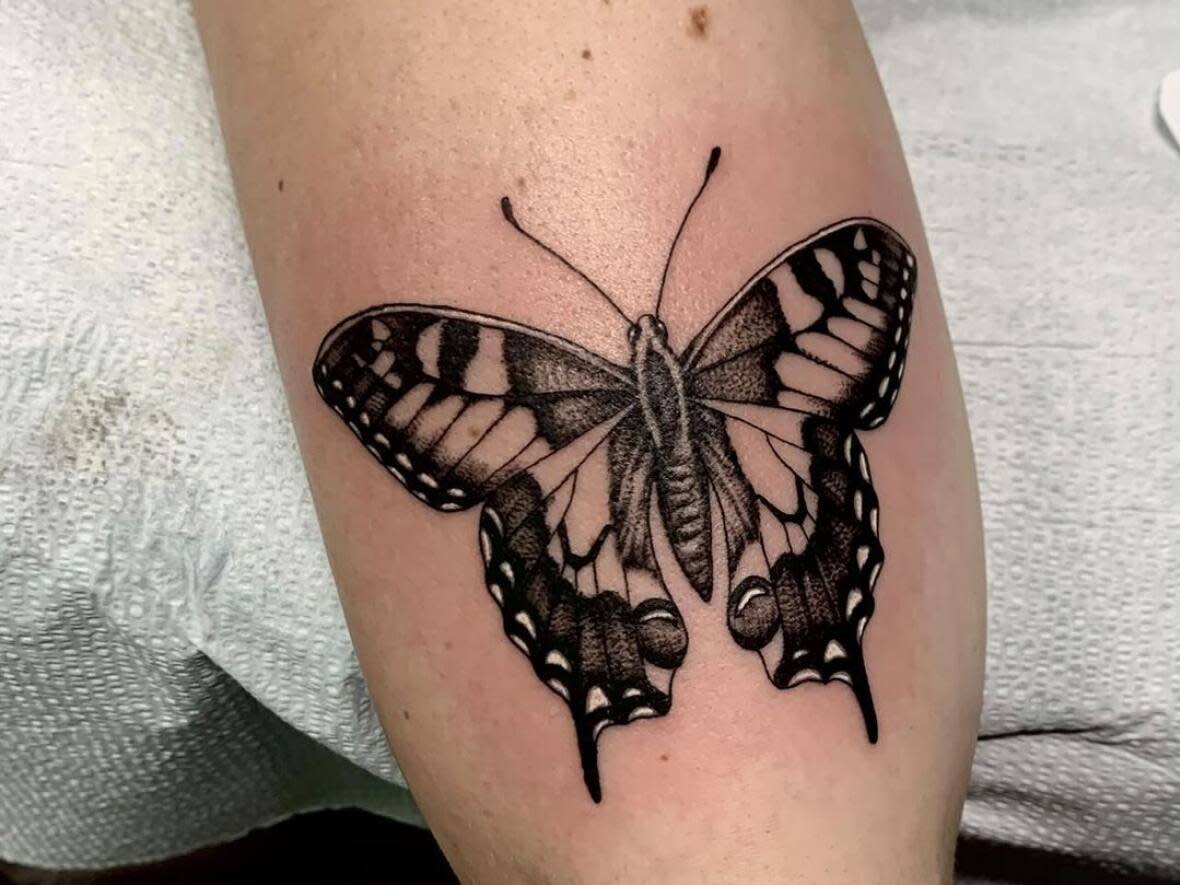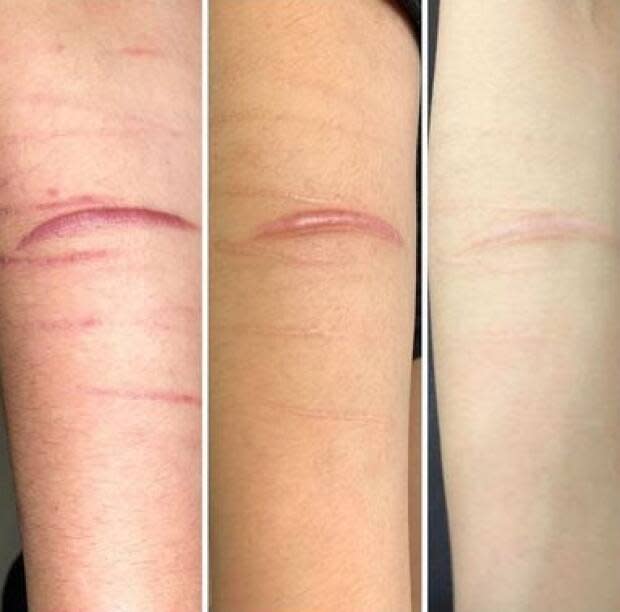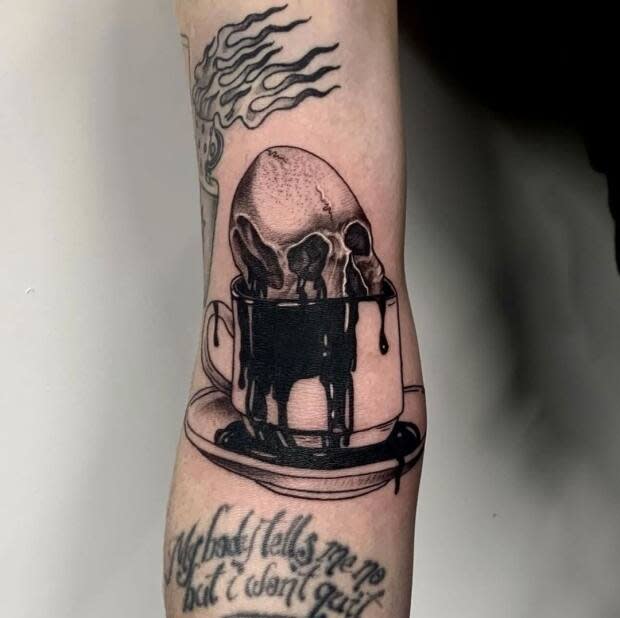Overcoming mental health hurdles one scar at time

For a client of Halifax tattoo artist Phoebe Russo, body art is more than decoration.
"For a while, I looked at my scars and decided it was to be a constant reminder of how bad things became — a visual diary of the consequences of self-harm and hesitation wounds," said John. (CBC has agreed not to use his real name).
"Phoebe reimagined the damage done into something artistic, something beautiful — a new monument to moving forward towards reclaiming my lost confidence."
John says he didn't start out with the intention of covering his self-harm scars when he came to Russo for some tattoos, but the way covering them has affected his mental health has been exponential.
"As the sleeve finished, so did the scars get covered … But I think in that whole process, when it eventually got to that point, I think I texted Phoebe … and I was just sobbing, just absolutely … and then I looked at it finally in the mirror by myself and just wept openly."
LISTEN | How some tattoo artists are helping people with their mental health
Russo, a tattoo artist at Requiem in Halifax, began tattooing two and a half years ago. Since then, she's helped numerous people cover self-harm scars, saying there's been an increase in those coming forward to ask for them.
"I would say that there is a heightened amount of coverup interests when it comes to scars, and it's definitely something that might not be brought up right away due to insecurities and things like that."
Russo says she loves being able to help so many people heal.
"It's honestly very hard to believe. I tend to often struggle with impostor syndrome, in a sense."

While more people may be coming forward, covering scars isn't new.
Amber Thorpe, owner of piercing and tattoo parlor Adept in Halifax, says it's been happening for years and she's done it numerous times.
"I probably did one a few weeks ago, and she had them for a very long time. I think she was about 45, and she said she's had them since she was very young and she's just tired of looking at them.
"I had a girl, she had a full arm sleeve of self-harm … you know, that person made it, and they're getting past that kind of space in their mind, so I think that those are probably going to be harder to execute, but they're definitely satisfying as an artist."
It's not just traditional tattoo artists who want to make a difference in the mental health of others.

Collette Rice, who owns Highbrow Clinic in Dartmouth, does permanent makeup and paramedical tattoos.
She has a free program dedicated to serving people with self-harm scars. Rice says it's a popular program, and sessions with clients can be emotional.
"These are people who have gone … oftentimes, years and years without self-harm behaviour, so even though it can be triggering, it can be obviously life-changing."
She says she has at least one person inquiring about the service once a week. She says she hopes to expand the program someday.
"I probably have about 35 to 40 people on a wait-list right now looking for those services," Rice said.
Rice says that she's happy to see other tattoo experts being candid about doing this kind of work because it wasn't always that way.
"I'm very candid and open about the fact that I have suffered from depression and anxiety for the better part of my life," said Rice.
"I remember when I was young, I brought my thoughts to my mother. I was basically ostracized, right … I think it's really important that people out there know that they're not alone and that they can have those conversations, too."

John says it was a daily battle before getting his tattoos. Just looking in the mirror was hard.
Now it's different.
He says he's able to see himself as a beautiful canvas.
"For me personally, it felt far too difficult to keep hanging on to a memorial to trauma embedded in my skin," he said. "The reminder is always there beneath the skin, but having the surface transformed into everlasting esthetic beauty is a heartfelt gift."
Where to go for help
If you're experiencing a mental health crisis, Nova Scotia Health offers online mental health services.
People who are looking for support are encouraged to call their local clinic, the mental health and addictions intake line at 1-855-922-1122 from 8:30 a.m. to 4:30 p.m. AT on weekdays, or the province's toll-free mental health crisis line at 1-888-429-8167, which is available 24 hours, seven days a week.
People can also contact the Kids Help Phone at 1-800-668-6868 anytime of day.
If you're experiencing an emergency, call 911.
MORE TOP STORIES


